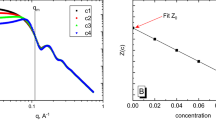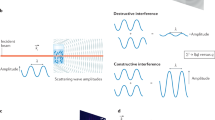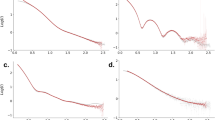Abstract
IN a recent discussion at the Royal Society (NATURE, vol. 123, p. 246), Sir Ernest Rutherford pointed out the great importance of the experiments on the scattering of α-particles by light atoms like those of magnesium, aluminium, helium, and hydrogen which are being carried out at the Cavendish Laboratory by himself and his co-workers Bieler, Chadwick, and others. The results of these experiments show very wide variation from the classical expression obtained on the assumption of an inverse square law, and led Rutherford and Bieler to the view that the repulsive force between positively charged particles changes into an attractive one when the distance of approach is less than 3 × 10−13 cm. Many attempts have been made to get an exact expression for this force. Bieler thought the force to be given by the law F = Ze2/r − μ/r4, while Debye and Hardemeier took the additive term to be inversely proportional to the fifth power of the distance.
This is a preview of subscription content, access via your institution
Access options
Subscribe to this journal
Receive 51 print issues and online access
$199.00 per year
only $3.90 per issue
Buy this article
- Purchase on Springer Link
- Instant access to full article PDF
Prices may be subject to local taxes which are calculated during checkout
Similar content being viewed by others
Author information
Authors and Affiliations
Rights and permissions
About this article
Cite this article
BANERJI, A. Scattering of α-Particles by Light Atoms. Nature 125, 167–168 (1930). https://doi.org/10.1038/125167c0
Issue Date:
DOI: https://doi.org/10.1038/125167c0
Comments
By submitting a comment you agree to abide by our Terms and Community Guidelines. If you find something abusive or that does not comply with our terms or guidelines please flag it as inappropriate.



